News
[Interview] Screenwriter Mark Bomback – War for the Planet of the Apes
Mankind moves closer to its demise in War for the Planet of the Apes, the third film in the Planet of the Apes reboot series. The architects of mankind’s destruction, and the continued rise of the apes toward global dominance, are director Matt Reeves and screenwriter Mark Bomback, whose collaboration began with 2014’s Dawn of the Planet of the Apes. For Bomback and Reeves, the challenge, and the excitement, of connecting the prequel series to the original 1968 film, isn’t based on the knowledge of what’s going to happen but rather the how and why.

In June, I had the chance to talk to Bomback about how he and Reeves constructed the screenplay for War for the Planet of the Apes and how this third prequel film fits into the overall Apes mythology.
DG: Mark, what were the key decisions that you and Matt made prior to the writing of this screenplay, in terms of the direction you wanted to take with this third film?
MB: Actually, before sitting down to write, Matt and I both agreed that nothing was off the table in terms of where the story could go. We knew, of course, that whatever the narrative was, it was going to center on Caesar and ideally set him on a path that takes him to places we’d yet to explore, but it would also continue his larger trajectory from accidental revolutionary to the leader of an entirely new civilization. We often say that these stories aren’t so much about where they’re ultimately going – we all know it’s called Planet of the Apes, not Planet of the Humans – but how they arrive there.
DG: How has the conflict between the apes and humans evolved between the end of the last film and the beginning of this film, and how have Caesar and the rest of the apes evolved?
MB: Well this new film is set two years after Dawn, and we quickly come to understand that in the interim the apes have been engaged in a near constant state of warfare. They’ve had to retreat to the woods and establish a new, clandestine home for themselves. The humans they’ve been fighting are relatively new arrivals to the world of our film, having been contacted at the end of the last film by Gary Oldman’s character. They’re much less ragtag than the human adversaries in Dawn – these are all military-trained men and women who have developed a kind of “kill or be killed” attitude toward the apes, who they insist on seeing as savage animals despite all evidence to the contrary. Under the leadership of The Colonel, to whom these soldiers have an almost cultish devotion, they believe themselves to be on a noble mission to save the human species. That kind of fervor can allow people to commit all sorts of atrocities in the name of doing what they believe is for the greater good.
In terms of the apes’ evolution, they’ve had to adapt to life during wartime, as I mentioned earlier. But they’ve also managed to evolve further as a species. You’ll find that Caesar has become even more articulate, and speech is peppered a little more into the ape community’s sign language. They’ve also continued to learn what it means to be parents and spouses and comrades-in-arms; I think you sense a lot more depth to all of their interactions.

DG: Mark, when I visited the set in December 2015, the footage of Caesar revealed to me that Caesar had lost his humanity. Question: How would you describe the state of Caesar’s relationship with humanity in this film, both his own humanity and the actual human race?
MB: Caesar’s internal struggle with his feelings toward humanity is one of the reasons we felt War was such an appropriate title for this film – Caesar is very much at war with himself. Remember, Caesar is the only ape who has a genuine love for humans, because of his history with characters like Will and Malcolm and Ellie in the previous films. When War begins, however, Caesar is already on the cusp of losing faith in humankind’s continued capacity for decency. The soldiers are just relentless. And soon events transpire that finally push Caesar to a place where he breaks with humanity once and for all. For the first time, he comes to understand what true hatred feels like, and it’s a terrifying journey for us to witness.
DG: Mark, while Dawn of the Planet of the Apes was a very contained, gritty film, War for the Planet of the Apes has been described as being an epic western film. Question: How would you describe the scale and tone of this film, and what were the notes and the themes that you wanted to inject into this story?
MB: The scale is certainly grander than in the previous films – far more epic than any film I’ve ever worked on, really. If Caesar is destined to become his people’s Moses, then we knew we should try to push the storytelling, the settings, and the ideas to a more mythic place. The trick was to make it feel connected to the last film tonally, but also move into a more sweeping, almost biblical direction. As for the theme, as I said earlier, the central theme in this film is the war within us all, the inevitable struggle between the drive for survival and the maintenance of one’s moral compass.
DG: Mark, how would you describe Woody Harrelson’s character, the Colonel, his mission, his point-of-view, and what kind of obstacle does he represent for Caesar in the film?
MB: Without giving too much away, I’ll say that the Colonel is in many ways the perfect foil for Caesar. He is someone who has grappled with the costs of war as well, and who has ultimately chosen to abandon his morality in order to prevent what he believes will be the extinction of his own species. He has evolved (or devolved) to a place where no action is deemed inexcusable if it means the survival of humankind. And Caesar comes to question if that sort of grim resolve is actually necessary to survive. Bottom line, there’s a bit of a “there but for grace of God goes Caesar” to the Colonel’s character.
DG: Mark, what does this third film represent within the prequel series, and what sets this film apart from the previous two films, and all of the other Apes films?
MB: That’s really a bit difficult to answer without treading into spoiler territory. I’ll simply say that this film marks a very significant step toward the world of the original 1968 Planet of the Apes film. What sets it apart, in my opinion, is the ambition of the storytelling, the even more incredible nuances of the performances – and of course the brilliance of the mo-cap work. The folks at Weta have truly outdone themselves this time around. It’s pretty astounding.
DG: What was the biggest challenge you faced in making this film, telling this story?
MB: The biggest challenge was ensuring that this film mark a significant step forward in every way. At the risk of sounding immodest, I really loved Dawn, as did Matt. We were keenly aware of certain things we wished we could have improved, but on the whole it succeeded in a way that makes me very proud. When we set down to figure out the narrative for War, Matt and I both agreed that if we weren’t totally confident that this was a better story than either of the two films that preceded it, then it wasn’t worth telling. The road to mediocrity is paved with three-quels that thought they could simply coast, and we were anxious to avoid that. We were determined to be as ambitious as possible, to entertain every crazy idea we had and really go for broke. I hope we’ve succeeded.
DG: Mark, as Alien: Covenant represented a major leap toward Alien, in terms of the Alien prequel series, what is the proximity between this film and the 1968 film, which is, theoretically, the ultimate destination?
MB: I’m afraid to answer that would be to spoil the film. Sorry!
DG: Mark, it’s been said that ending to this film would function as a satisfactory ending to the series, if the decision was made not to make more films. Question: Do you agree with this, and have you and Matt established a rough framework for more films, and if you were told that the next film, the fourth film in the prequel series, were, in fact, the last film, how excited, and prepared, would you be for the challenge of ending this series?
DG: Gosh, I don’t mean to sound coy, but I’m afraid I’m not totally comfortable answering that either or even speculating on exactly what the next film or films could or couldn’t accomplish. What I will say is that it’s an incredibly rich and inspiring world, and I’ve been really privileged to explore it over the course of these films thus far.
'Civil War' Review: Is It Worth Watching?
Follow our new YouTube channel "Mysteries and Movies" here.

News
Watch ‘The Burning’ At The Location Where It Was Filmed

Fangoria is reporting that fans of the 1981 slasher The Burning will be able to have a screening of the film at the location where it was filmed. The movie is set at Camp Blackfoot which is actually the Stonehaven Nature Preserve in Ransomville, New York.
This ticketed event will take place on August 3. Guests will be able to take a tour of the grounds as well as enjoy some campfire snacks along with the screening of The Burning.
The film came out in the early ’80s when teen slashers were being churned out in magnum force. Thanks to Sean S. Cunningham’s Friday the 13th, filmmakers wanted to get in on the low-budget, high-profit movie market and a casket load of these types of films were produced, some better than others.
The Burning is one of the good ones, mostly because of the special effects from Tom Savini who had just come off of his groundbreaking work on Dawn of the Dead and Friday the 13th. He declined to do the sequel because of its illogical premise and instead signed on to do this movie. Also, a young Jason Alexander who would later go on to play George in Seinfeld is a featured player.
Because of its practical gore, The Burning had to be heavily edited before it received an R-rating. The MPAA was under the thumb of protest groups and political bigwigs to censor violent films at the time because slashers were just so graphic and detailed in their gore.
Tickets are $50, and if you want a special t-shirt, that will cost you another $25, You can get all the information by visiting the On Set Cinema webpage.
'Civil War' Review: Is It Worth Watching?
Follow our new YouTube channel "Mysteries and Movies" here.
Movies
‘Longlegs’ Creepy “Part 2” Teaser Appears on Instagram
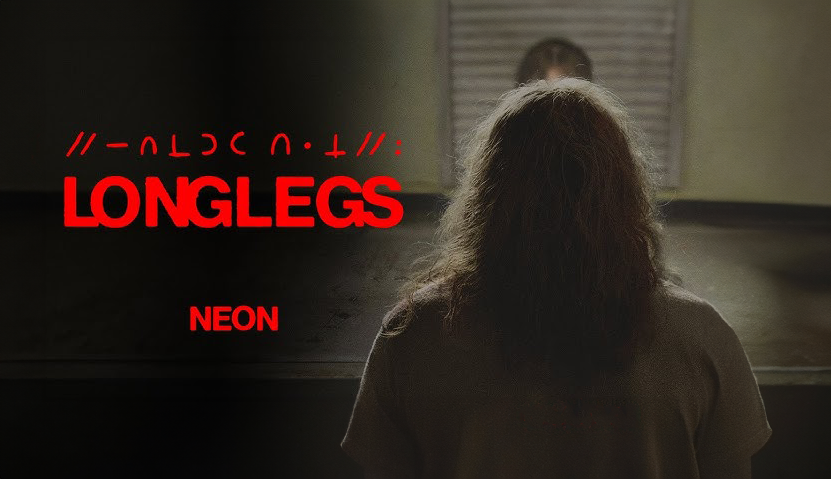
Neon Films released an Insta-teaser for their horror film Longlegs today. Titled Dirty: Part 2, the clip only furthers the mystery of what we are in for when this movie is finally released on July 12.
The official logline is: FBI Agent Lee Harker is assigned to an unsolved serial killer case that takes unexpected turns, revealing evidence of the occult. Harker discovers a personal connection to the killer and must stop him before he strikes again.
Directed by former actor Oz Perkins who also gave us The Blackcoat’s Daughter and Gretel & Hansel, Longlegs is already creating buzz with its moody images and cryptic hints. The film is rated R for bloody violence, and disturbing images.
Longlegs stars Nicolas Cage, Maika Monroe, and Alicia Witt.
'Civil War' Review: Is It Worth Watching?
Follow our new YouTube channel "Mysteries and Movies" here.
News
Exclusive Sneak Peek: Eli Roth and Crypt TV’s VR Series ‘The Faceless Lady’ Episode Five
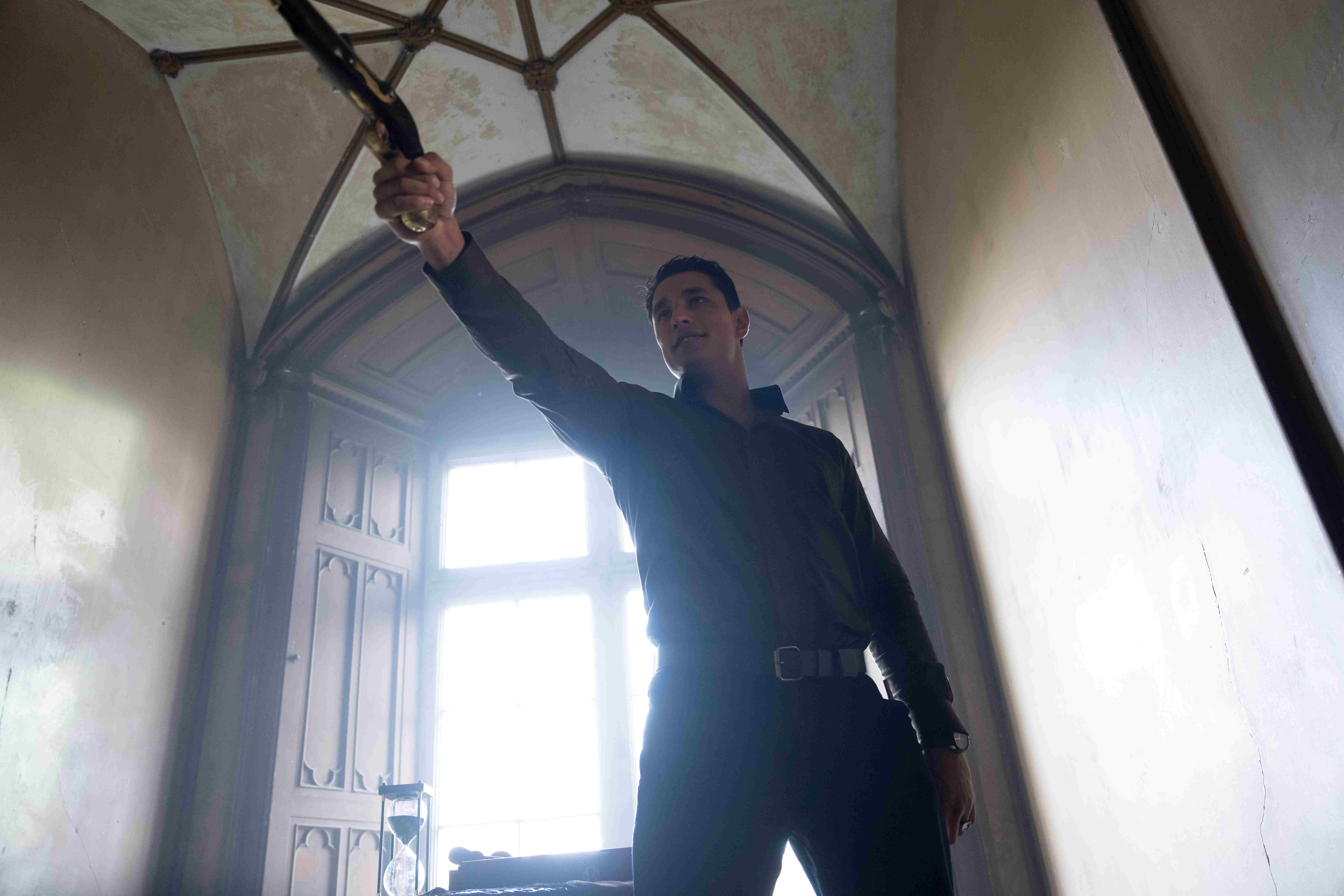
Eli Roth (Cabin Fever) and Crypt TV are knocking it out of the park with their new VR show, The Faceless Lady. For those unaware, this is the first fully scripted VR horror show on the market.
Even for masters of horror like Eli Roth and Crypt TV, this is a monumental undertaking. However, if I trust anyone to change the way that we experience horror, it would be these two legends.
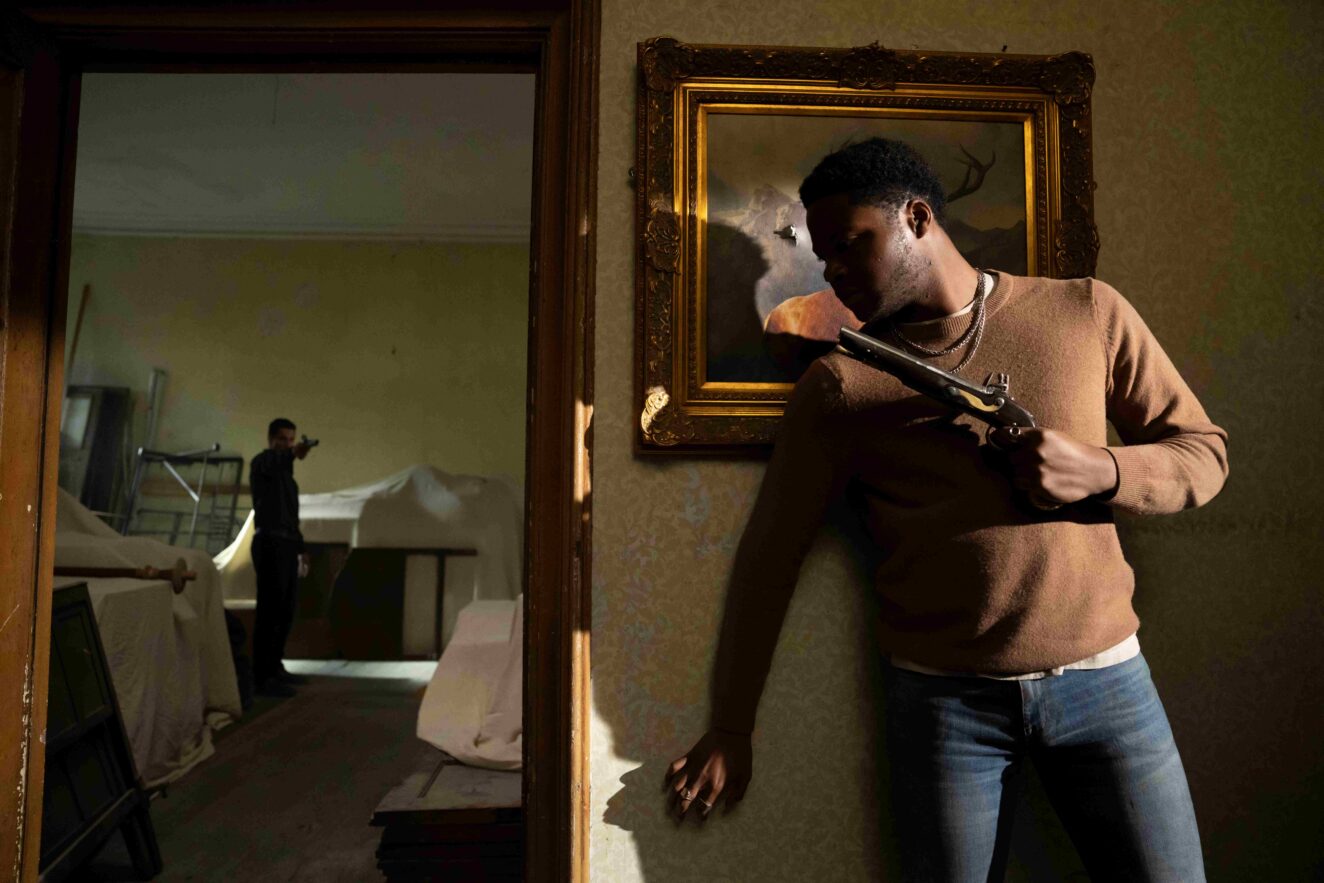
Ripped from the pages of Irish folklore, The Faceless Lady tells the story of a tragic spirit cursed to wander the halls of her castle for all of eternity. However, when three young couples are invited to the castle for a series of games, their fates may soon change.
So far, the story has provided horror fans with a gripping game of life or death that doesn’t look as if it will slow down in episode five. Luckily, we have an exclusive clip that may be able to satiate your appetites until the new premiere.
Airing on 4/25 at 5pmPT/8pmET, episode five follows our final three contestants in this wicked game. As the stakes are raised ever higher, will Ella be able to fully awaken her connection with Lady Margaret?
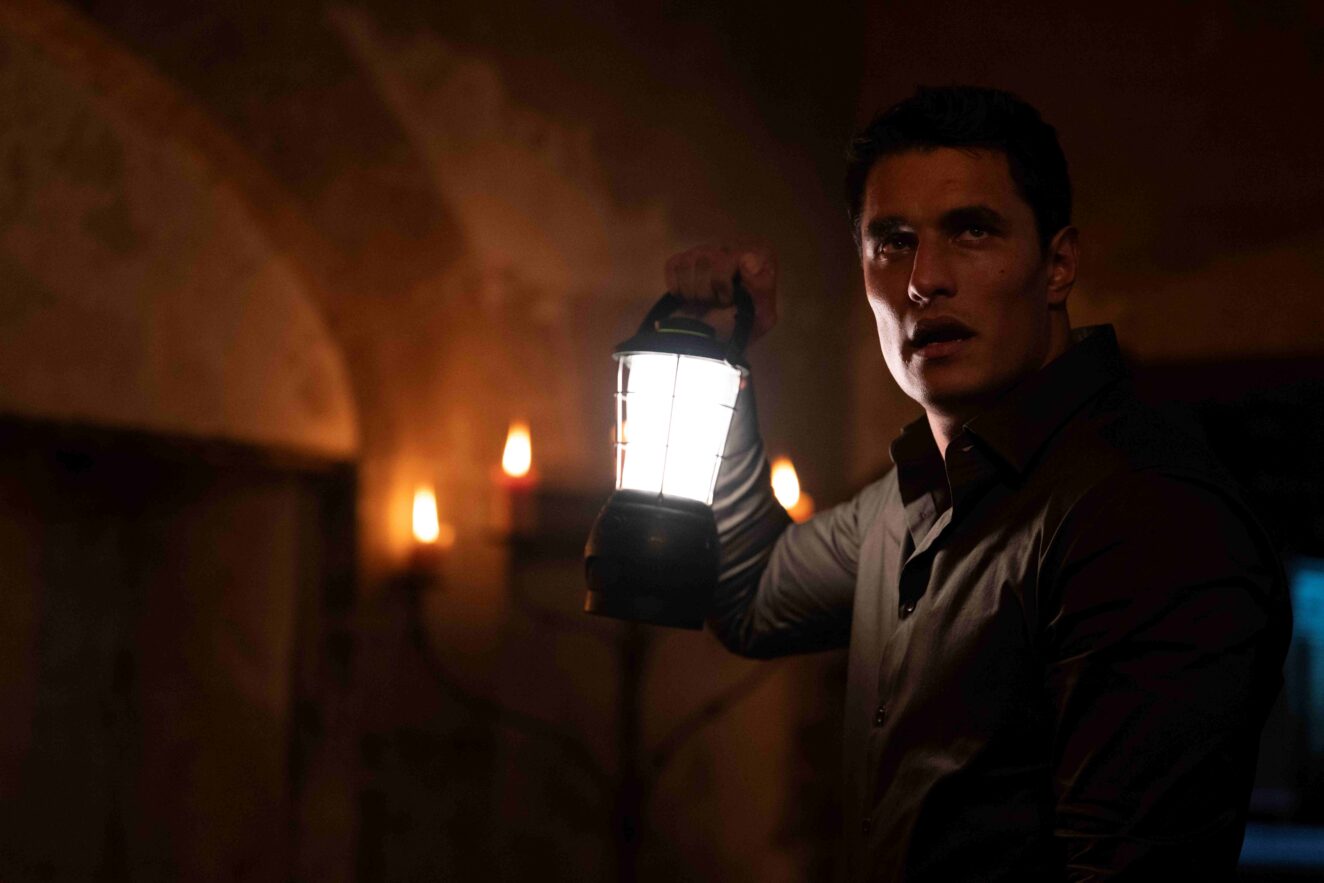
The newest episode can be found on Meta Quest TV. If you haven’t already, follow this link to subscribe to the series. Make sure to check out the new clip below.
Eli Roth Present’s THE FACELESS LADY S1E5 Clip: THE DUEL – YouTube
'Civil War' Review: Is It Worth Watching?
Follow our new YouTube channel "Mysteries and Movies" here.
-

 News6 days ago
News6 days agoWoman Brings Corpse Into Bank To Sign Loan Papers
-
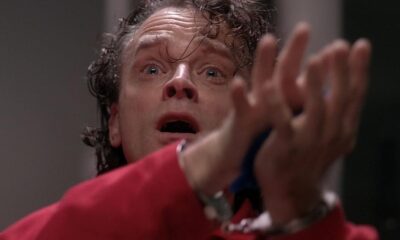
 News5 days ago
News5 days agoBrad Dourif Says He’s Retiring Except For One Important Role
-

 Strange and Unusual5 days ago
Strange and Unusual5 days agoMan Arrested for Allegedly Taking a Severed Leg From Crash Site And Eating It
-
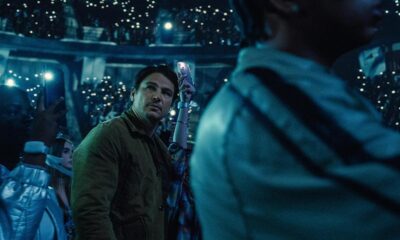
 Movies6 days ago
Movies6 days agoPart Concert, Part Horror Movie M. Night Shyamalan’s ‘Trap’ Trailer Released
-

 Movies6 days ago
Movies6 days agoAnother Creepy Spider Movie Hits Shudder This Month
-

 Editorial5 days ago
Editorial5 days ago7 Great ‘Scream’ Fan Films & Shorts Worth a Watch
-
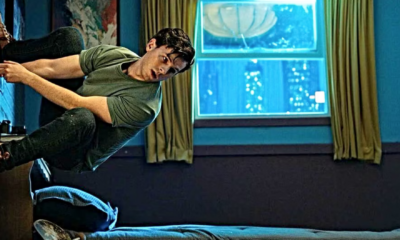
 Movies4 days ago
Movies4 days agoSpider-Man With a Cronenberg Twist in This Fan-Made Short
-
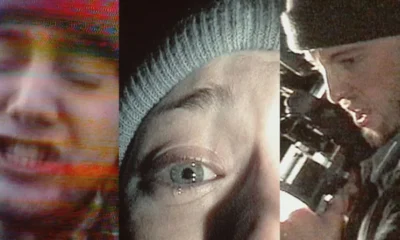
 News3 days ago
News3 days agoOriginal Blair Witch Cast Ask Lionsgate for Retroactive Residuals in Light of New Film
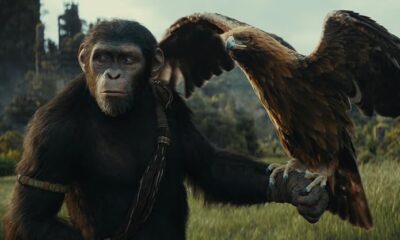


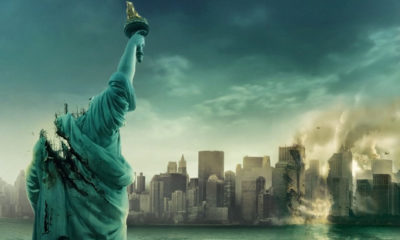






















You must be logged in to post a comment Login